The owners of a popular bar and Mangalorean eatery near Hindmata go back to their roots to serve Southie breakfast and kaapi to the working class and young professionals
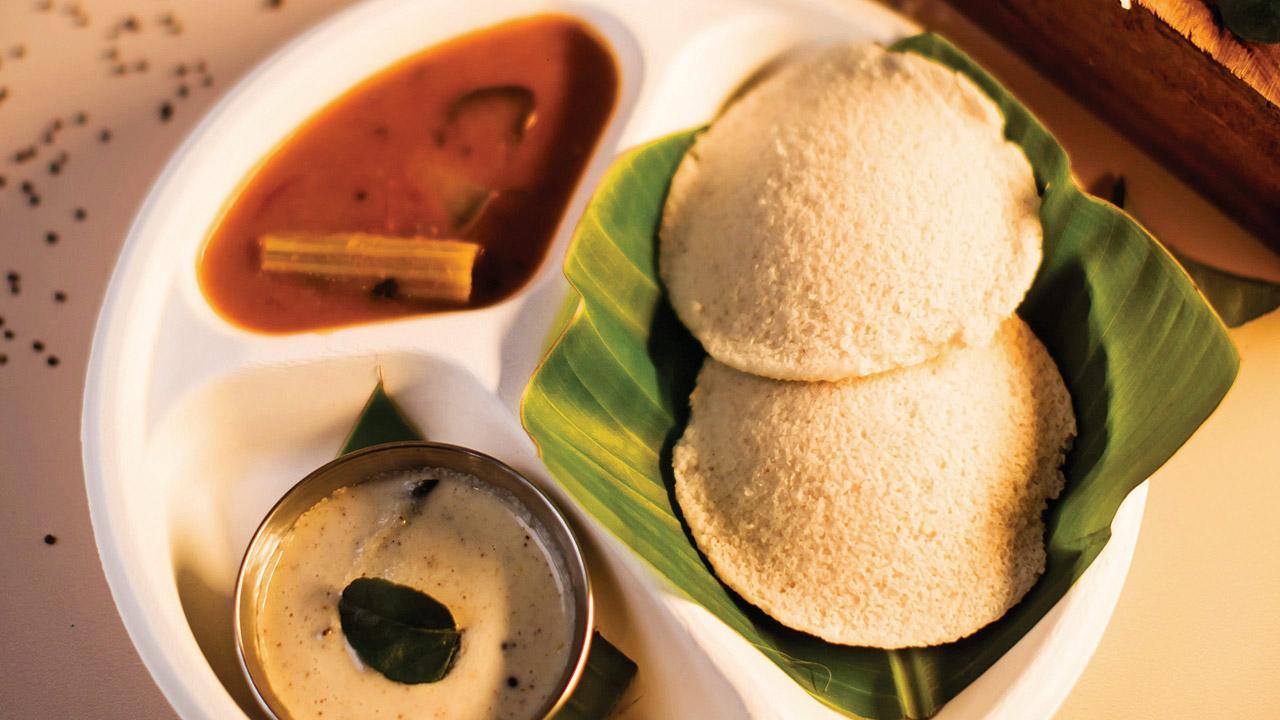
The Shetty brothers, who remember feasting on vada-sambar, idli and dosa at Matunga’s eateries as children, wanted to recreate the same vibe at their family restaurant
In the middle-class neighbourhood of Hindmata in Dadar East, where markers of old cotton mills and BDD chawls are fast disappearing, Krishna Vilas Hindu Hotel appears to be the only permanent fixture. The Shri Samarth: Ashray Vishranti Gruha, a decades-old restaurant, situated only a few hundred metres away, was the other popular watering hole. But, the pandemic, as ruthless as it was, put the brakes on many such ageing, but flourishing cultural spaces in the locality.
ADVERTISEMENT
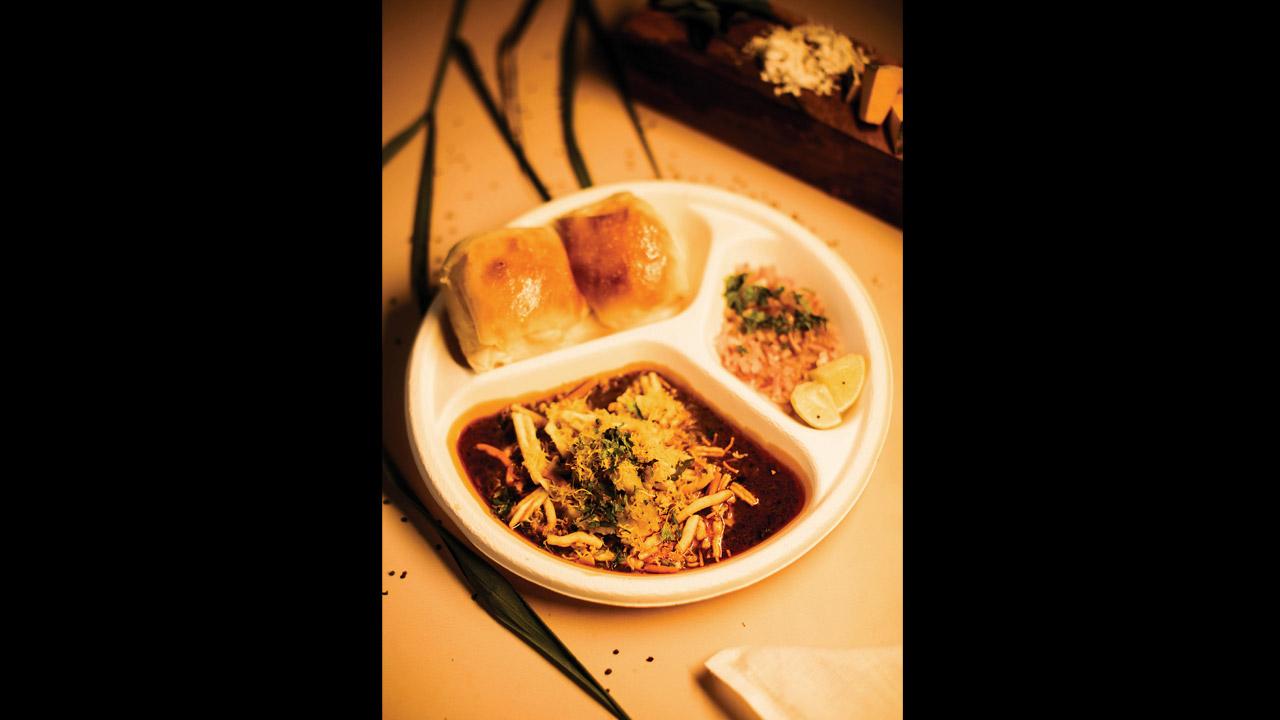
Late Shekhar Shetty, who ran Krishna for nearly 40 years, was known most for his usal and misal pav that he served at Prabhakar eatery in the Dadar East neighbourhood. The dishes have made a comeback on Krishna’s new menu
Krishna, known among locals as KV and Krishna’s Bar, almost bit the dust too. But its owner Shreyas and his brother Swaraj Shetty, determined to revive their father Shekhar Shetty’s over 40-year eatery, have gone back to their family’s roots in the Udupi district of Karnataka, to relaunch the space as a South Indian breakfast joint, Krishna’s Cafe: Veg Express. “The idea was to bring Matunga to Dadar,” says 38-year-old Swaraj, who remembers feasting on vada-sambar, idli and dosa at Ram Ashraya and its likes, as a child. “But, there was nothing like this for residents of South Mumbai. Many of them had to travel all the way to Matunga,” he recalls. Krishna, he feels, could become that bridge to draw more residents from the South to experience authentic Udupi fare.
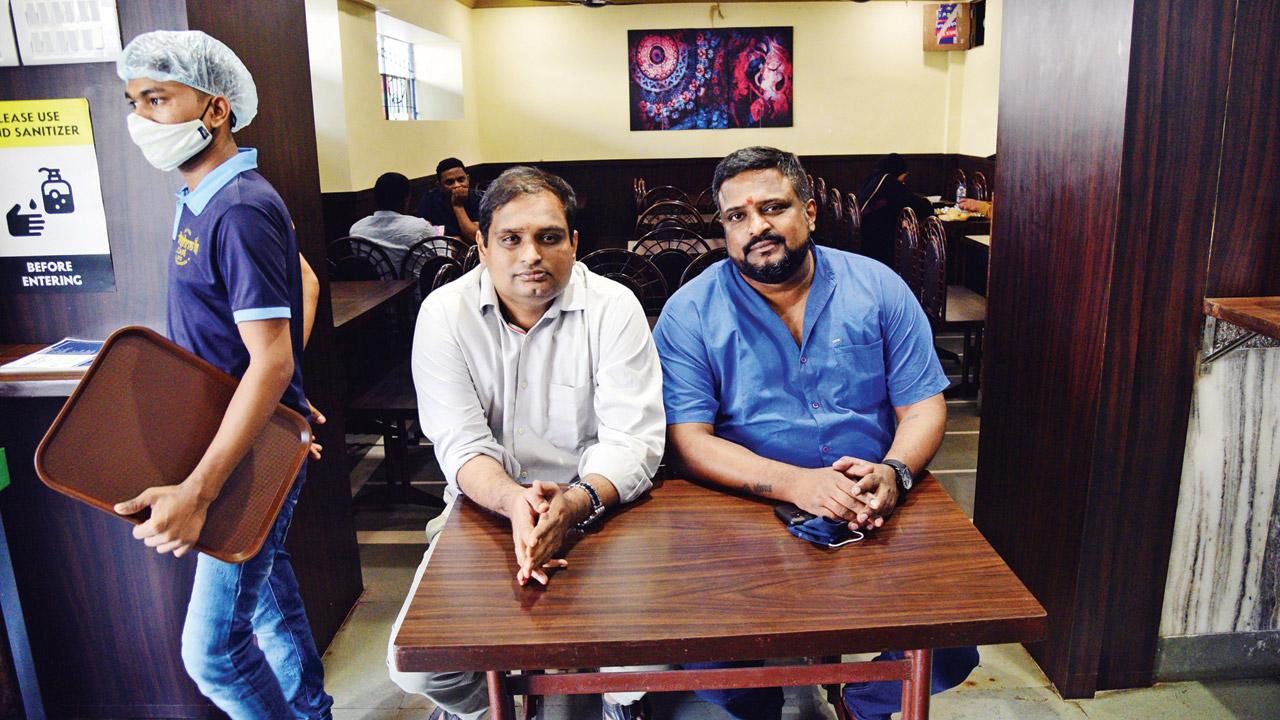
Shreyas Shetty (right) and brother Swaraj at Krishna’s Cafe in Dadar East, formerly known as Krishna Vilas Hindu Hotel, which their father first took over in the late 1970s. The restaurant was known for its non-veg meals and bar, before it re-launched as a South Indian breakfast eatery late last year. Pics/Pradeep Dhivar
With a brand new name, and novel-looking blue signboard that reflects the sky, Krishna Cafe, which first opened as Krishna Vilas Hindu Hotel in 1960, has retained most of its original charm—its marble wall cladding and grey kota stone flooring, for instance—but its kitchen and menu have undergone a complete overhaul. Where bangda masala fry was once washed down with a glass of chilled beer, the waiting staff, all dressed impeccably in blue T-shirts, now spell out other specials when taking orders—neer dosa, upma, kanchipuram idli, goli and bhajji, all best enjoyed with kaapi (filter coffee).
It’s taken both, Shreyas and Swaraj, the architects of this new enterprise, a lot of re-thinking and strategising before attempting the shift, especially because it’s the bar and affordable non-veg meals that brought in the working-class crowd to the restaurant. It also meant moving away, even if slightly, from their late father’s vision. But some risks, feels Shreyas, are worth taking.
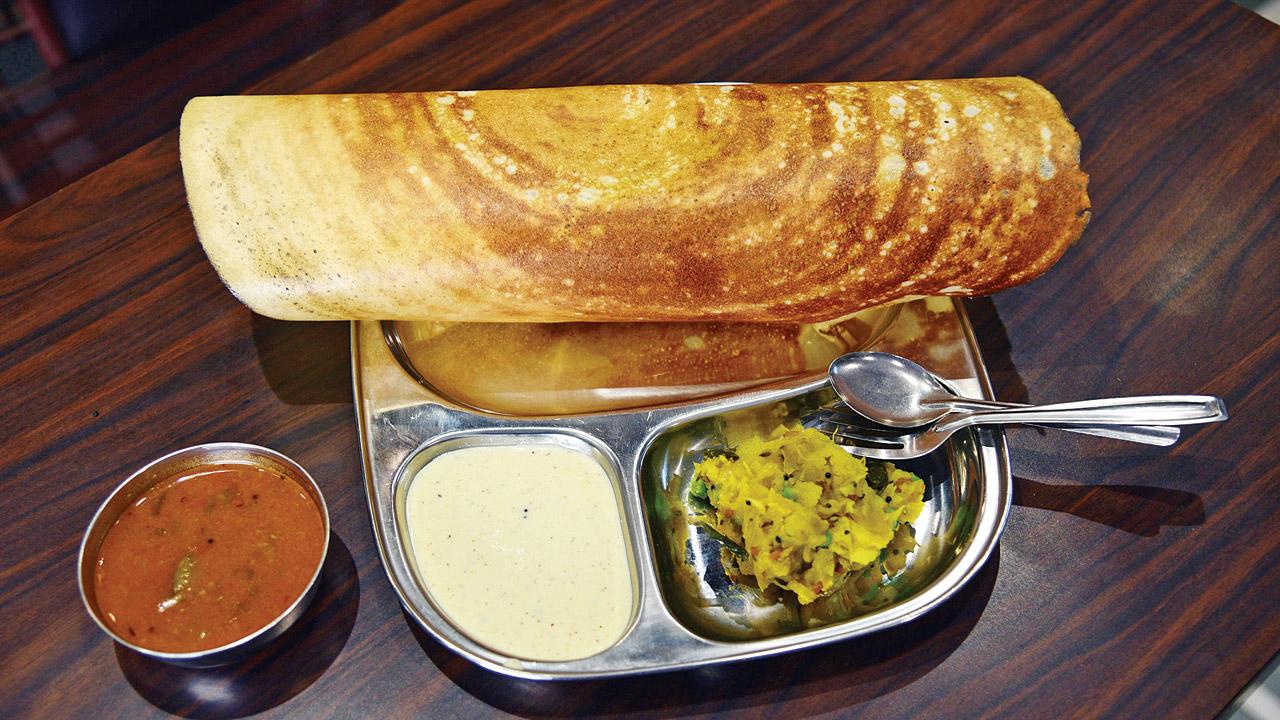
Masala dosa
Their father, Shekhar Shetty, who was the eldest in the family, moved to the city from Udupi in the early 1960s. “He had just lost his father then, and had to make the shift, so that his other siblings could continue their studies,” shares 40-year-old Shreyas. In Bombay, he began waiting tables in his uncle’s restaurant Shri Samarth, also in Dadar. “He worked there for nearly 15 years. In those days, there was no concept of a restaurant manager, so my father practically did the same job day in and out,” adds Shreyas.
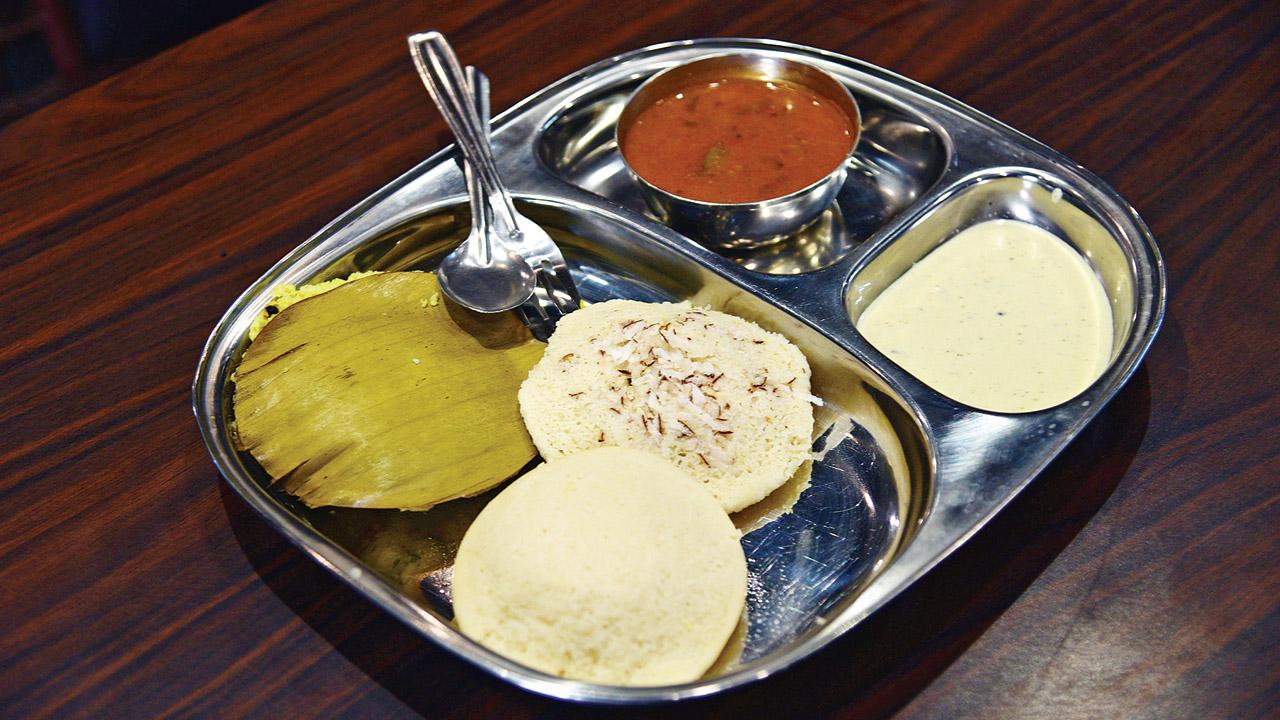
Sada, rava and kanchipuram idlis
In the mid-1970s, Shekhar decided to move away from his uncle’s restaurant business, and start out on his own. “It’s around this time that he came across Prabhakar, a small eatery in the same neighbourhood, and took it on lease from its owner. Within a short span of time, Prabhakar became really popular among the locals, especially the mill workers in the area,” shares Shreyas. The eatery was known for its usal and misal pav in all of Dadar, but they also served typical Maharashtrian snacks, including vada pav, poha and kanda bhaji. At one point, the eatery was run by Shekhar and his three brothers, making it a family-run enterprise—“my father had managed to bring all of them [brothers] to Bombay. While one of them would handle the accounts, others would work in the kitchen. They would grind their masalas on their own.” Prabhakar continued to serve residents for nearly seven years, before the original owner took back the space. But Prabhakar’s success led Shekhar to invest in a restaurant of his own—in the late 1970s, he bought over Krishna Vilas Hindu Hotel, a well-known lunch home in the area.
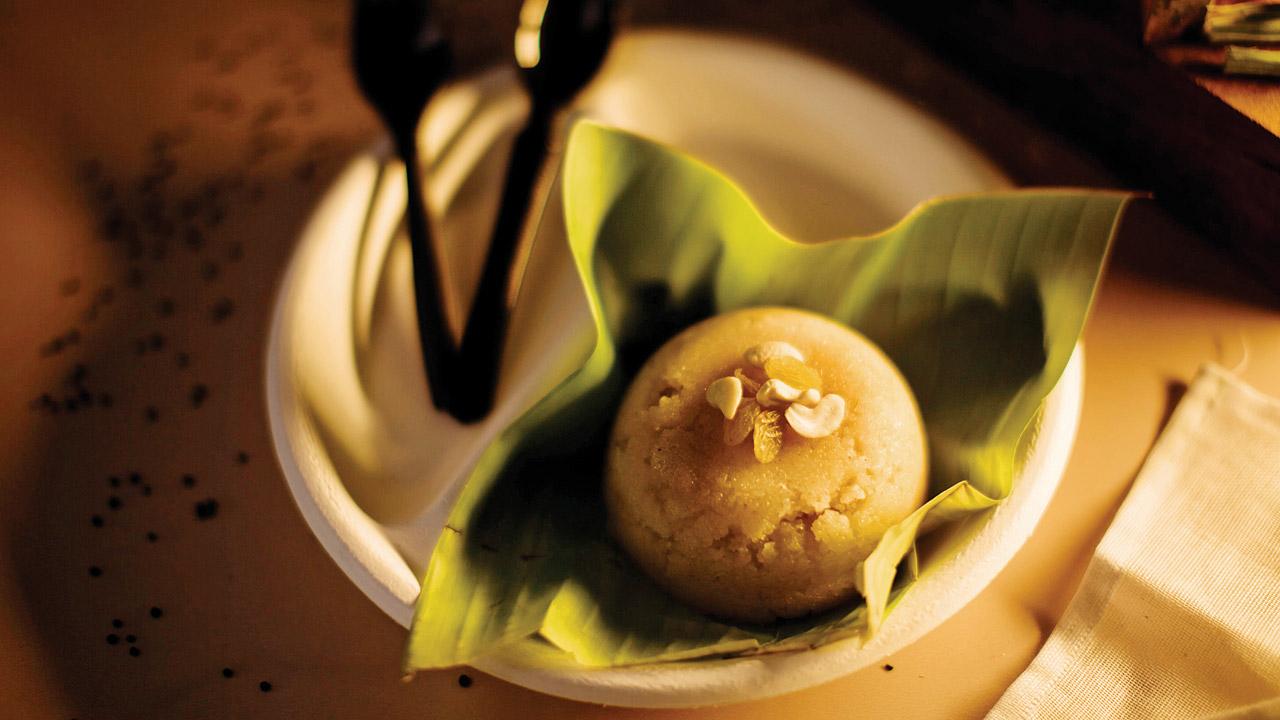
Sheera
“When my father took over, the first change he made was to include Mangalorean dishes on the menu. So, kori rotti, mutton sukka, fish gassi and other non-veg meals started being served. This took off in a big way.” Five years later, in 1985, the restaurant also expanded to include a bar. “I think my father was just catering to the demand at that time. A lot of people in the Hindmata locality lived with large families in crammed spaces. They really had no place to escape to, or enjoy a drink. Our place became their second home,” says Shreyas.
Swaraj, who now resides in Sion, but grew up just a stone’s throw away from the family restaurant in Dadar, shares how in the early 1990s students from the nearby colleges would visit their lunch home for a quick beer. “This became their regular haunt; I think it’s the student crowd that began to call us KV.” The area also had a lot of government employees and Gujarati traders, who were the loyal clique that dropped by the restaurant every evening after work. “Some of them have been patronising us for nearly two decades,” shares Swaraj, adding, “The place became a unique melting point, where you had people from all walks of life visit.” Over a period of time, they expanded the menu to include the Indian Chinese cuisine, and North Indian favourites like tikka masla and butter chicken.
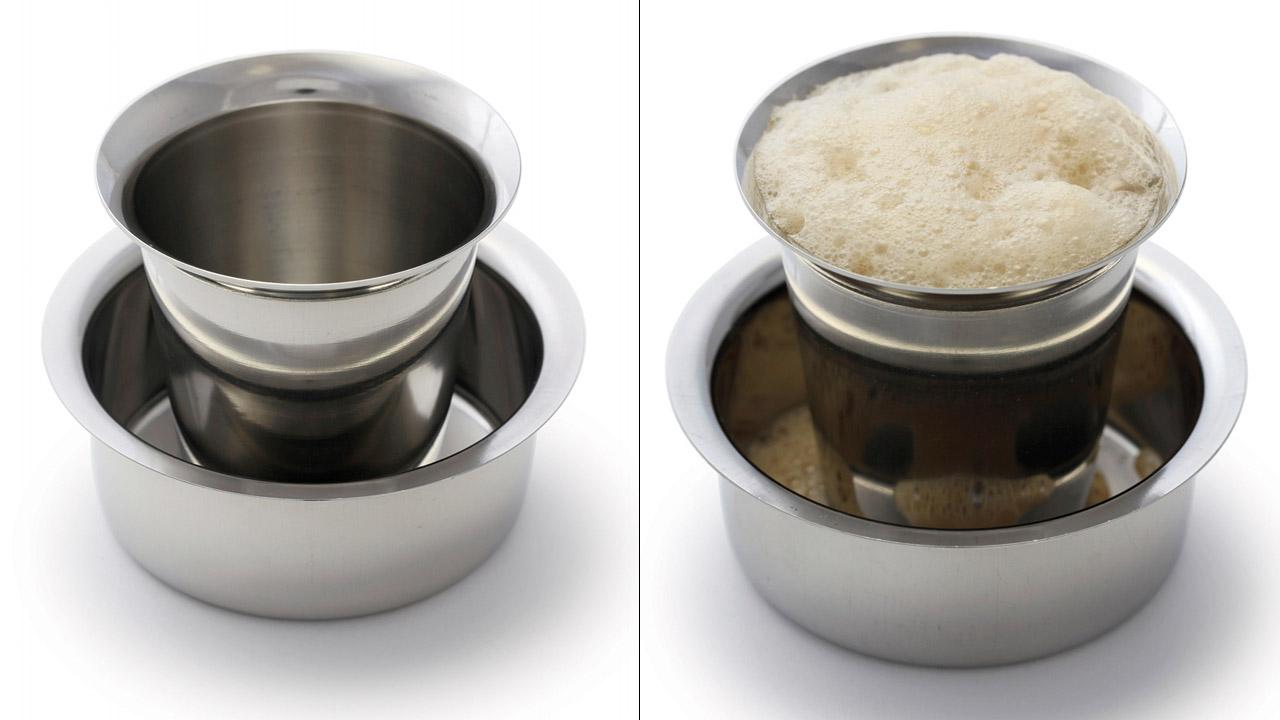
In 2012-2013, when Shekhar became unwell, Shreyas, who has done his PG in hospitality operations from an institute in Lucern, Switzerland, and was working in the UK, decided to return to Mumbai to manage the family business. When his father passed away in 2018, Shreyas took charge, with Swaraj, who works in the startup space, helping him with the marketing. The brother’s would have continued to run the lunch home as is, had it not been for the pandemic. The restaurant remained shut for nearly six months after the first lockdown, opening up for its patrons only in November 2020. But, the second lockdown threw a spanner in the works, forcing them to think of a relaunch plan. “It hit us in unprecedented ways. A lot of our staff members went back, and didn’t return,” says Shreyas. Swaraj adds that with joints like theirs, which were patronised purely for the vibe the place had to offer, having an online presence didn’t really do much for their business. “We could also sense a general change in mindset [of people] as well. The lockdown taught us that simple things and simple food mattered,” shares Shreyas.
The brothers felt that it would be interesting to recreate the Matunga breakfast experience in Dadar. “The idea was to keep it simple and affordable.” Krishna Cafe reopened in September with a wide vegetarian fare that harks back to their own family’s journey in the restaurant business. The menu has pure ghee dosas comprising nearly 30 varieties, including cocktail utappa, methi and set dosa, and the staple rava and masala dosa. In the snacks section, there’s sheera, idli, vada, and misal and usal pav they were once most known for. There’s also vegetarian lunch and upvas food (sabudana khichdi and vada) served during the rest of the day. Of all the things this writer enjoyed from the menu, we thought it was important to make a mention of the often ignored side accompaniments, the sambar and chutney, that go well with most South Indian breakfast meals. If these go wrong, so does the meal. The chutney from Krishna’s had the right amount of sweet and spice, while the sambar was perfectly tangy, and went well with the soft neer dosas. Long after we had eaten our dosa and idli, we continued to polish off remnants of the chutney and sambar from our plate. The Mangalore buns, deep-fried fluffy puris made using yogurt, bananas and flour, and usually had with chutney, was also a delicious offering. We enjoyed it plain. “Though the pandemic has been a dampener, the feedback has been positive,” says Swaraj.
Shreyas admits that old-time customers are yet to warm up to fact that Krishna’s no longer serves chicken and alcohol. “Everything is very new for us. Though we have been here all these years, I feel the same anxiety my father might have experienced, when he took over Krishna. It’s like starting over again.”
 Subscribe today by clicking the link and stay updated with the latest news!" Click here!
Subscribe today by clicking the link and stay updated with the latest news!" Click here!







